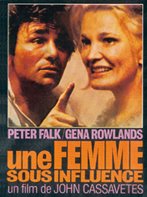is the mid-50s we started hearing about a comedian named John Cassavetes
New York
The Man Who Shot fear
). Deserter and humanist, fiercely independent,
Cassavetes is already quite himself, but we do not know yet. Stage actor, television and film, charming and seductive as not, the future
Johnny Staccato is designated to become a new 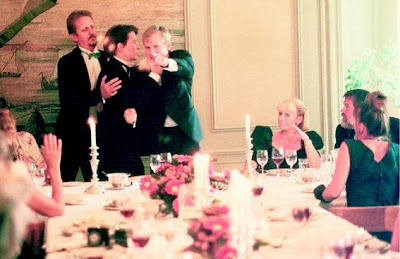 James Dean or Marlon Brando , unless it is a successor of Humphrey Bogart , with whom he shares the small size and sharp intelligence.
James Dean or Marlon Brando , unless it is a successor of Humphrey Bogart , with whom he shares the small size and sharp intelligence.
Then came a bizarre event that disturbs the plans they had drawn for the future star. One evening in 1957, John Cassavetes
listening only to his impulses, which would later become legendary, decides to make a movie. He realized that but there will not. And better than that, he decided to finance the film public subscription. This will ultimately not really the case, but with the help of Maurice Mac Endres and Nico Papatakis , exiled in New York because of the war in Algeria, he will finish Shadows
Godard, Truffaut, Rivette in France, or Oshima Japan, Cassavetes brings a breath of air and life in film. Shadows as Breathless or later
Shadows (1959)
New Wave cinema and this moment is unique. Shadows defines, better than any other film, the axes of the method Cassavetes: complicity in the production and staging, refusal of submission to the technical relationship to the actor, explosive mixture Improvisation and writing, editing designed as a work in progress. In short, a film based on intuition and freedom controlled. A film where the human element triumph. Turn with Cassavetes for technicians like actors, requires availability at all times. Imagination is better than dry professionalism. The atmosphere is more important than the script and the actors are the princes of the film, true touchstones of the staging. From all this

Then the brother-sister relationships are handled with subtlety, delicacy and implicitly contain rare dimension if not incestuous, or at least close to love. Slope of incest that grazed Cassavetes borrow again, twenty-five years later for his penultimate film Love Streams. But in Shadows like Love Streams is less the sexual attraction that haunts the secret affinity Cassavetes, indefinable linking a brother and sister. Concern that the close, on behalf of the cinema, the great novels that experiment the brother-sister like Pierre or the ambiguities of Herman Melville or The Man Without qualities of Robert Musil . Anyway,
which improvises along with Shafi Hadi his saxophone at the time, throughout the image is so Mingus body with Shadows
does not prevent it from being noticed by Hollywood.
. Experience the second film will still be traumatic for
Stanley Kramer

After a period of mild depression, Cassavetes, whose energy is as astonishing as that of a Bergman or
Faces is still important because it is the first film Cassavetes where the idea of troop plays a predominant role. We see at work two favorite actors of the tribe,
Too Late Blues while the second involved in A Child is Waiting , second role behind the stars, Judy Garland and Burt Lancaster . But this time they are one and the other, finally free to move, capable of shortcuts, instant pulse invisible in traditional Hollywood films. I will add a special mention to Lynn Carlin , one of the leading actresses, who for the purpose of the film, passed the state secretary to the actress. As for John Marley , the last member of the quartet basis, we find later in The Godfather a bloody horse head in the middle of her bed.
gave Cassavetes a form of recognition and a new autonomy. With this film, made friends and wrist strength, without money or nearly so, with production methods unconnected with the industry, begins the best period of
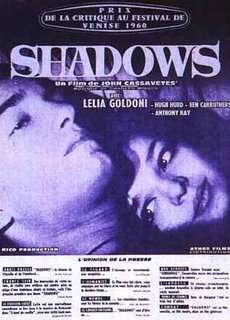 A Woman Under the Influence (A Woman Under the Influence, 1974)
A Woman Under the Influence (A Woman Under the Influence, 1974)
In 1973 it turns A Woman Under the Influence with Gena Rowlands again and Peter Falk
Faces, A Woman Under the Influence
featured the frustrations of a man and a woman who tore. A Woman Under the Influence shows instead how a couple is recovering. Rarely has a film been both documentary as well as modest. Moreover, the film is not limited to the couple, it brings the excess at the heart of the family. It mobilizes all the relationships and emotions that oscillate incessantly family love to alienation. This time, the footage that dominates and allows Cassavetes beautifully capture the scenes group. Three examples unforgettable: the main stage where spaghetti Mabel (Gena Rowlands ) is facing a twenty workers; the sequence that precedes the internment where the step-mother, husband, doctor, children come to form clusters of people literally intractable: the return of Mabel home. Three classic moments that have nothing yet bravura. On madness, Cassavetes never the slightest glance moralizing. He is content to record behavior and leaves us free to try or rather watching. The secret
Killing of a Chinese Bookie (The Killing of a Chinese Bookie, 1976) The next film, Killing of a Chinese Bookie ( 1976, first released in France under the title The Young Rascals
is already forgotten that Minnie and Moskowitz had all the appearance of a wacky comedy in the Capra.
Asphalt Jungle, it imposed its rhythm. Killing of a Chinese Bookie is a thriller Twilight, where Cassavetes
, played by Ben Gazzara 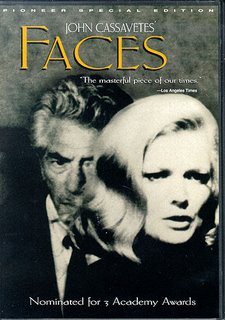 in great shape, which is back in the clan six years after Cassavetes Husbands . Cosmo Vitelli owns a striptease box but it is also the custodian of a morality of the spectacle of Jean Renoir Cancan
in great shape, which is back in the clan six years after Cassavetes Husbands . Cosmo Vitelli owns a striptease box but it is also the custodian of a morality of the spectacle of Jean Renoir Cancan
n would not have denied and which could be summarized in one sentence: "The show must go on." But Cosmo Vitelli is also the prototype of the self-made man trying desperately to maintain the financial independence of his small company without success. So it's a portrait of the filmmaker as a craftsman, guided by its desire for independence but watched by the money power. Cosmo sign an IOU to the Mafia and this signature is as irrefutable proof of his insanity.
Before returning to Hollywood just to talk Mafia for Gloria , Cassavetes will have time to achieve of her most ambitious Opening Night, we may consider his poetic art. The late release of this film is an event because it is simply one of the most important works of its author. First, because it shows a side of the filmmaker, theater, very important at the beginning and the end of his career. While Opening Night is not really a documentary on the theatrical work of Cassavetes , but in any case it allows to realize the importance he provided closely with cinema. Opening Night is the story of Myrtle Gordon (Gena Rowlands
), its author, its director of theater, stagehands, her dresser ... It's still a piece of history, The Second Woman , its repetition and its metamorphoses. Because of course in Cassavetes, the text is never sacred and life seeps through all sides of the stage for future change subtly or wildly theater. Opening Night
and Love Streams in which the presence of Gena Rowlands is exceptional. Here, the actress is extraordinary, playing behavioral disorders, mood changes, affective disorders and alcoholic hallucinations, nervous expenditure, with great presence Physical exceptional charge of his person literally to disgorge to the truth of the character. This gives the densest and most European films of Cassavetes, a tragi-comedy where the breath of indescribable drift away everything in its path.
VOSTF Preview: " Cinema, In Our Time - John Cassavetes "
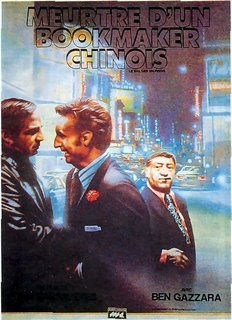
" For a long time Cassavetes is best known as an actor (
A blank ,
... " John Cassavetes 1929-1989
 Filmography as Director:
Filmography as Director:
-
(1977) - The Killing of a Chinese Bookie (1976) - A Woman Under the Influence (1974) - Minnie and Moskowitz
- Husbands (1970) - Faces (1968)
- A Child Is Waiting (1963)
(1962) - My Daddy Can Lick Your Daddy
(1962) - Too Late Blues
(1961)
Shadows (1959)
